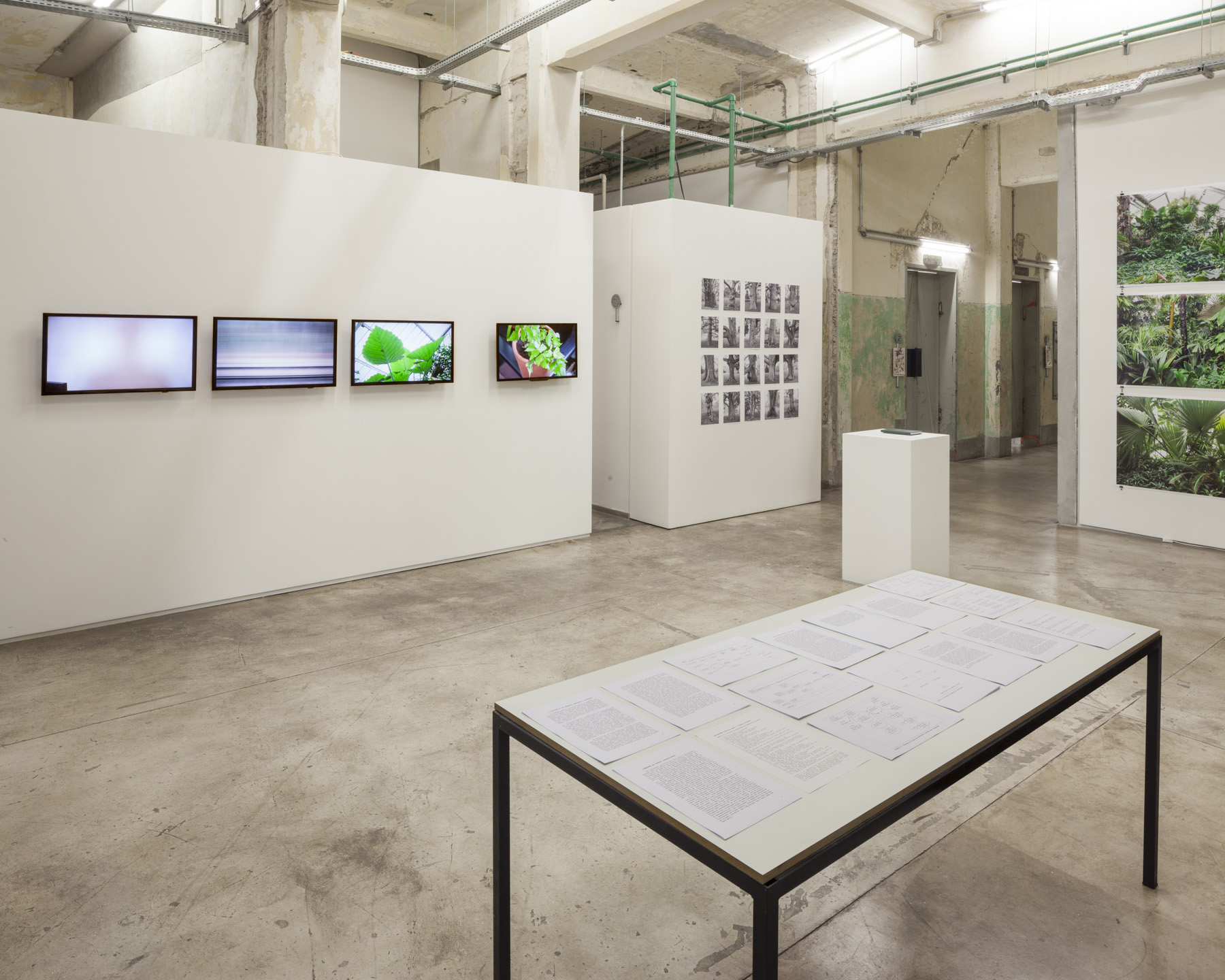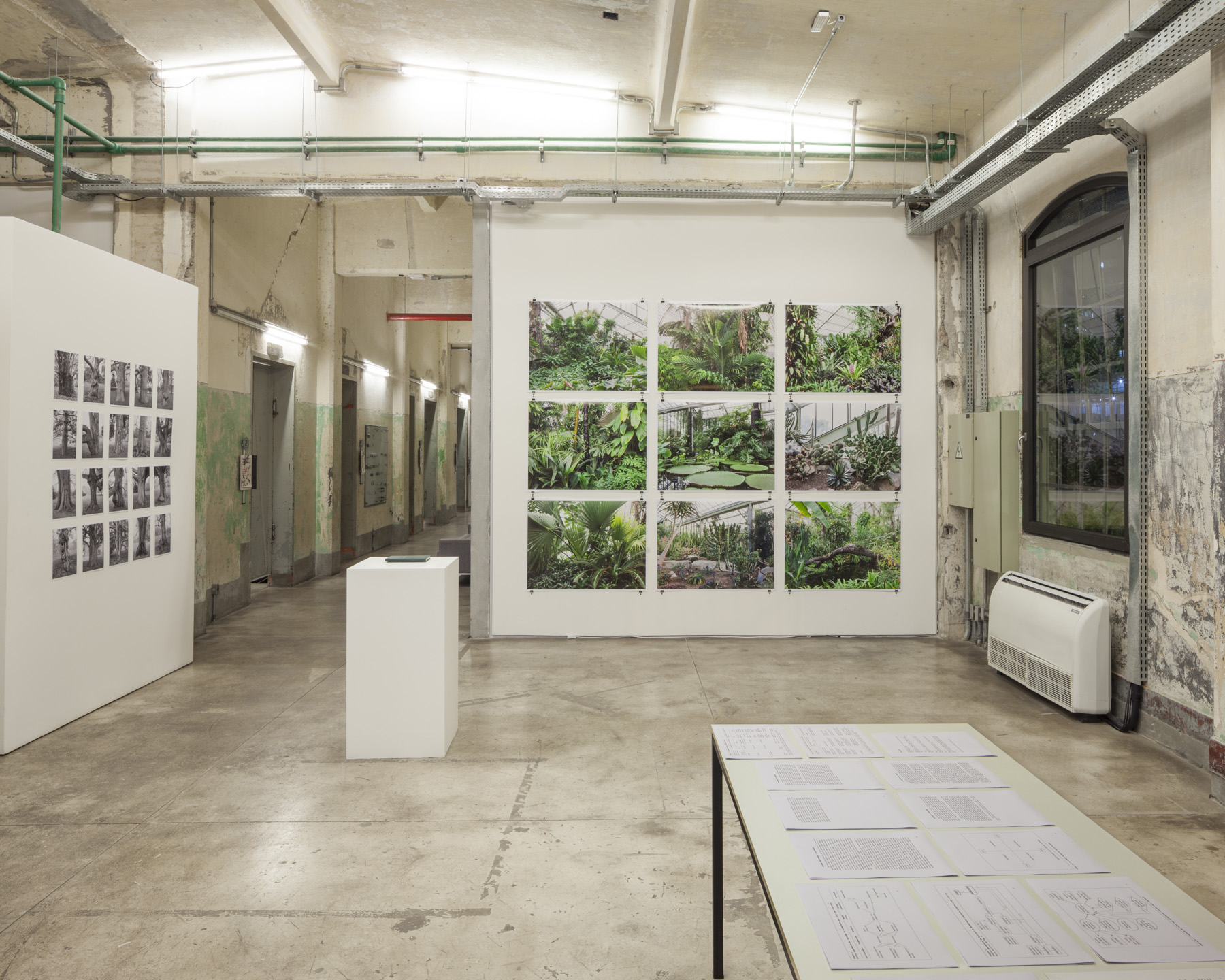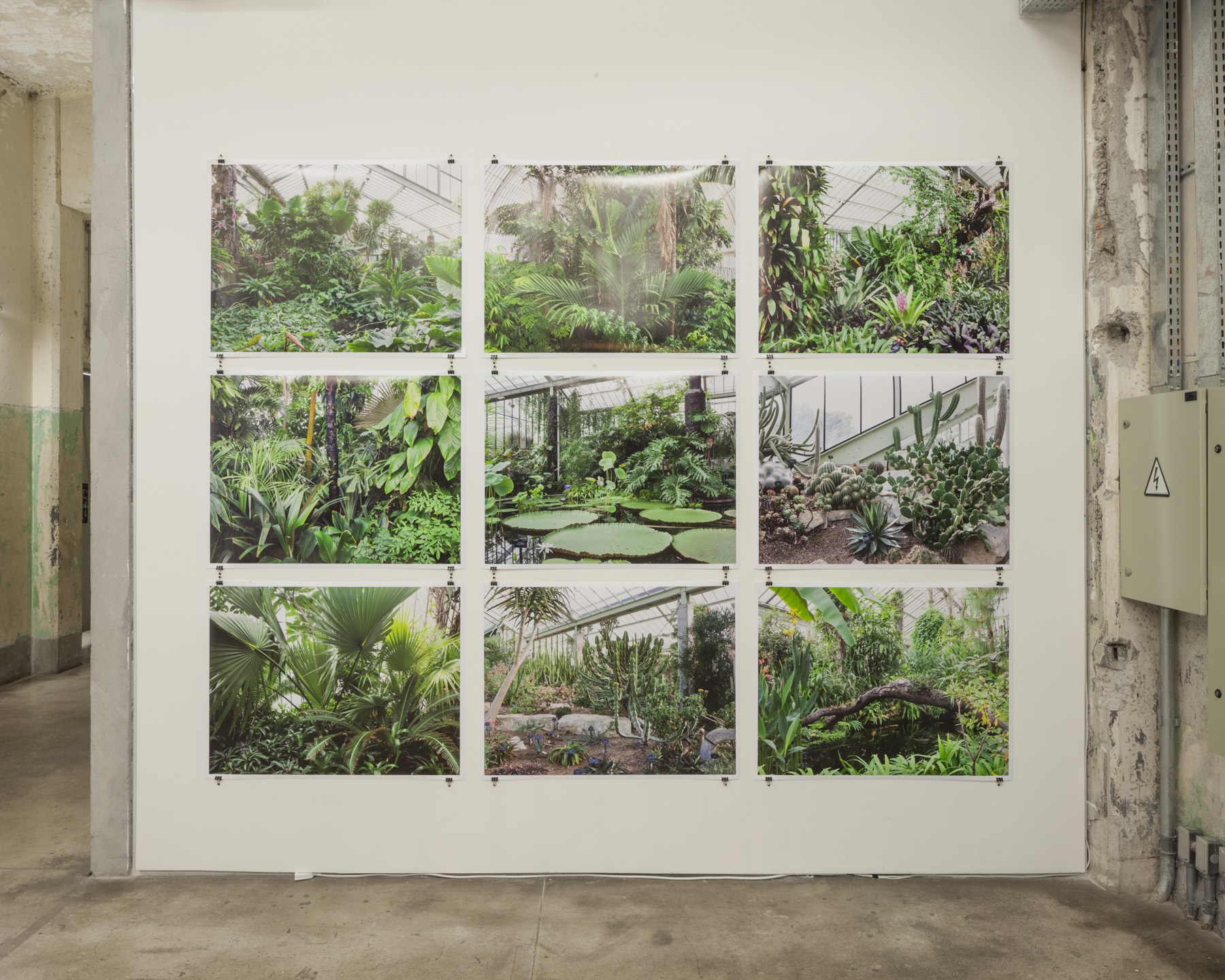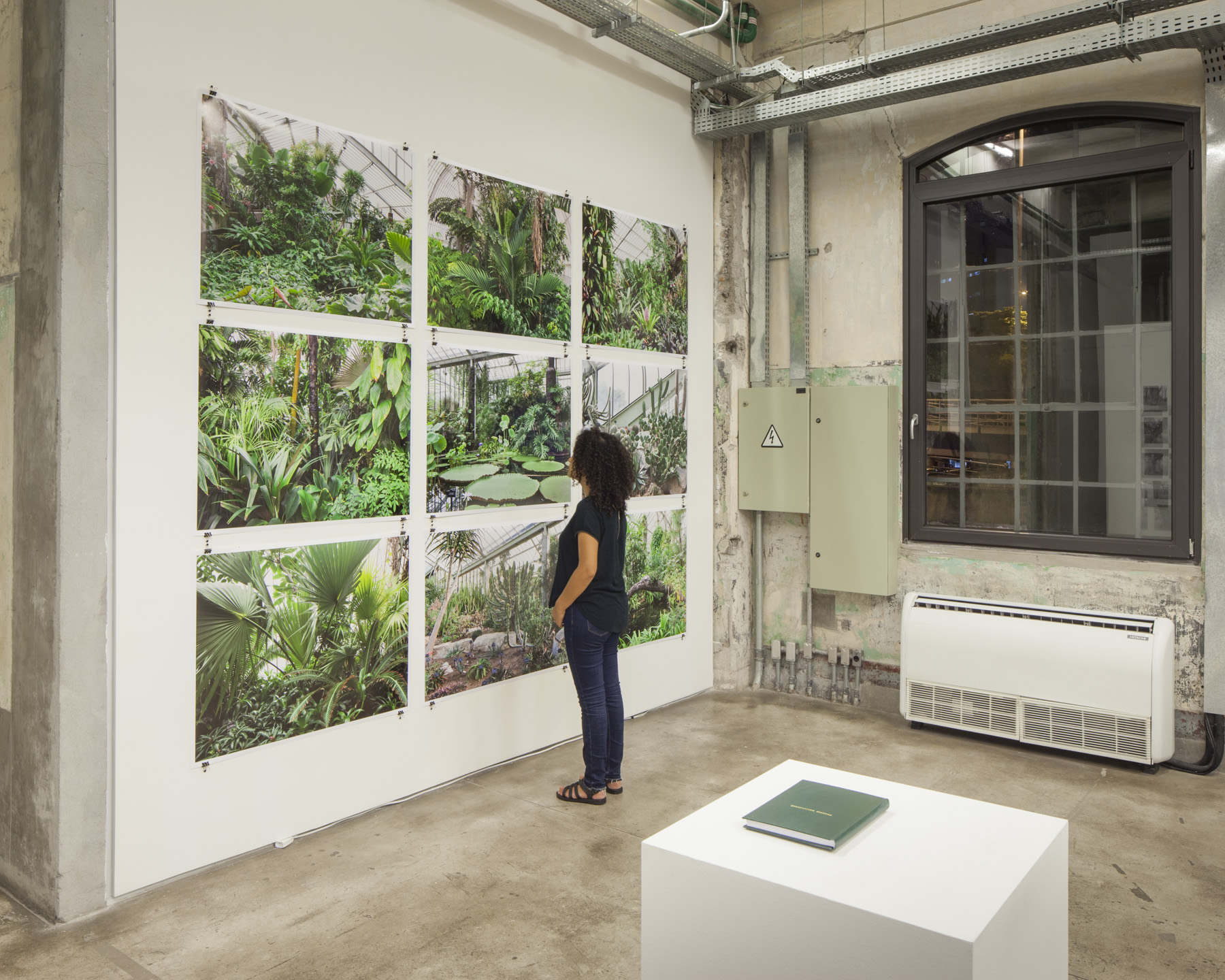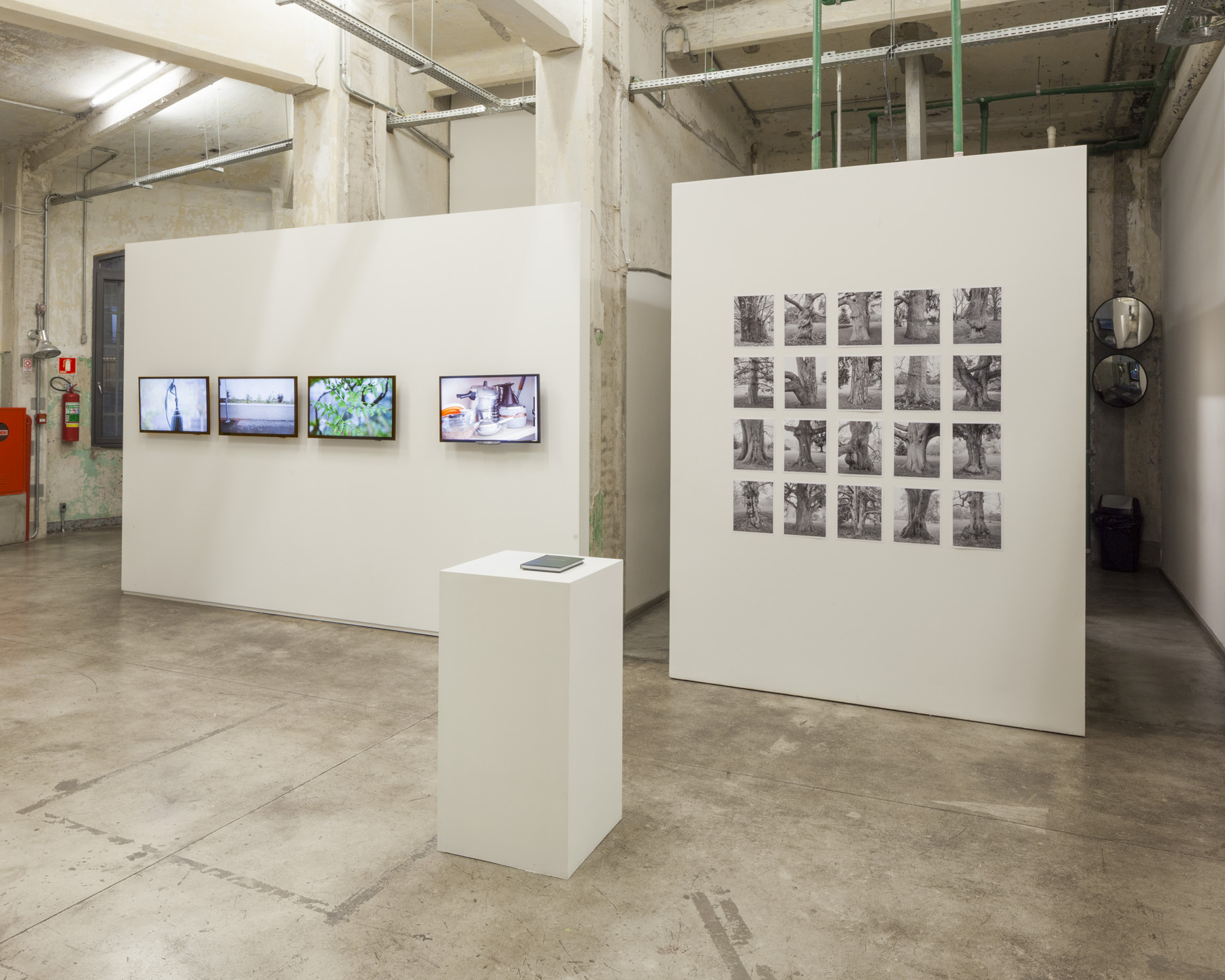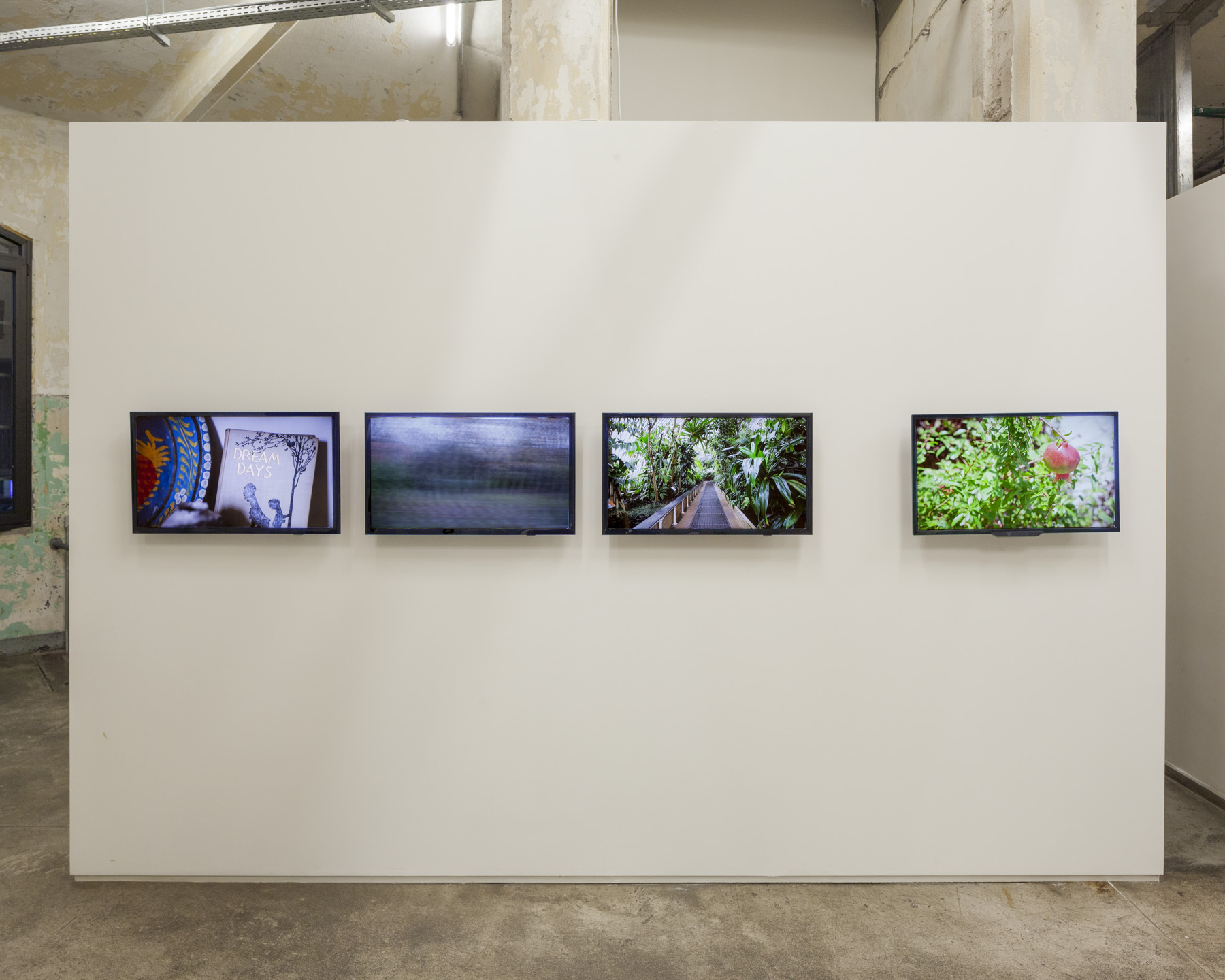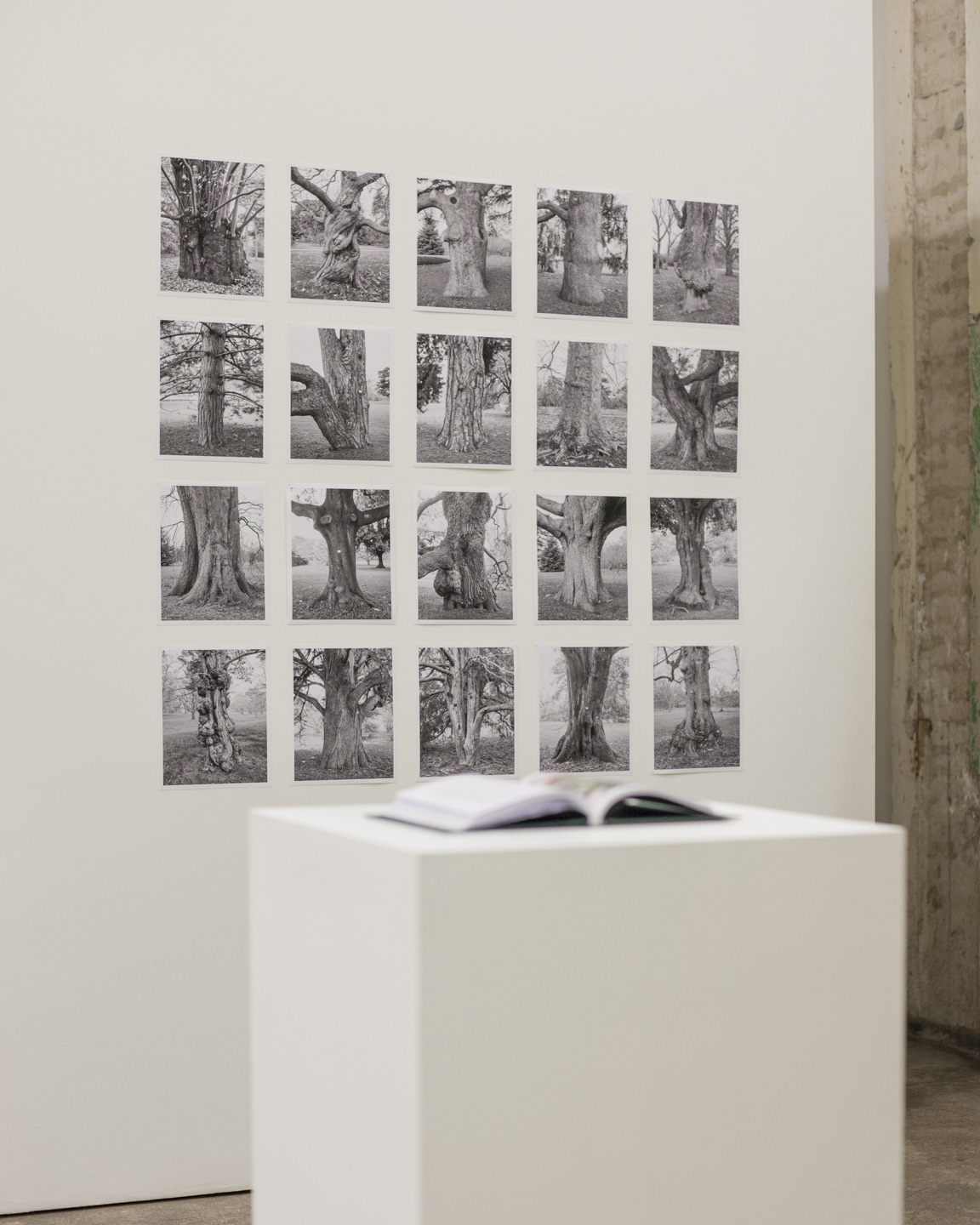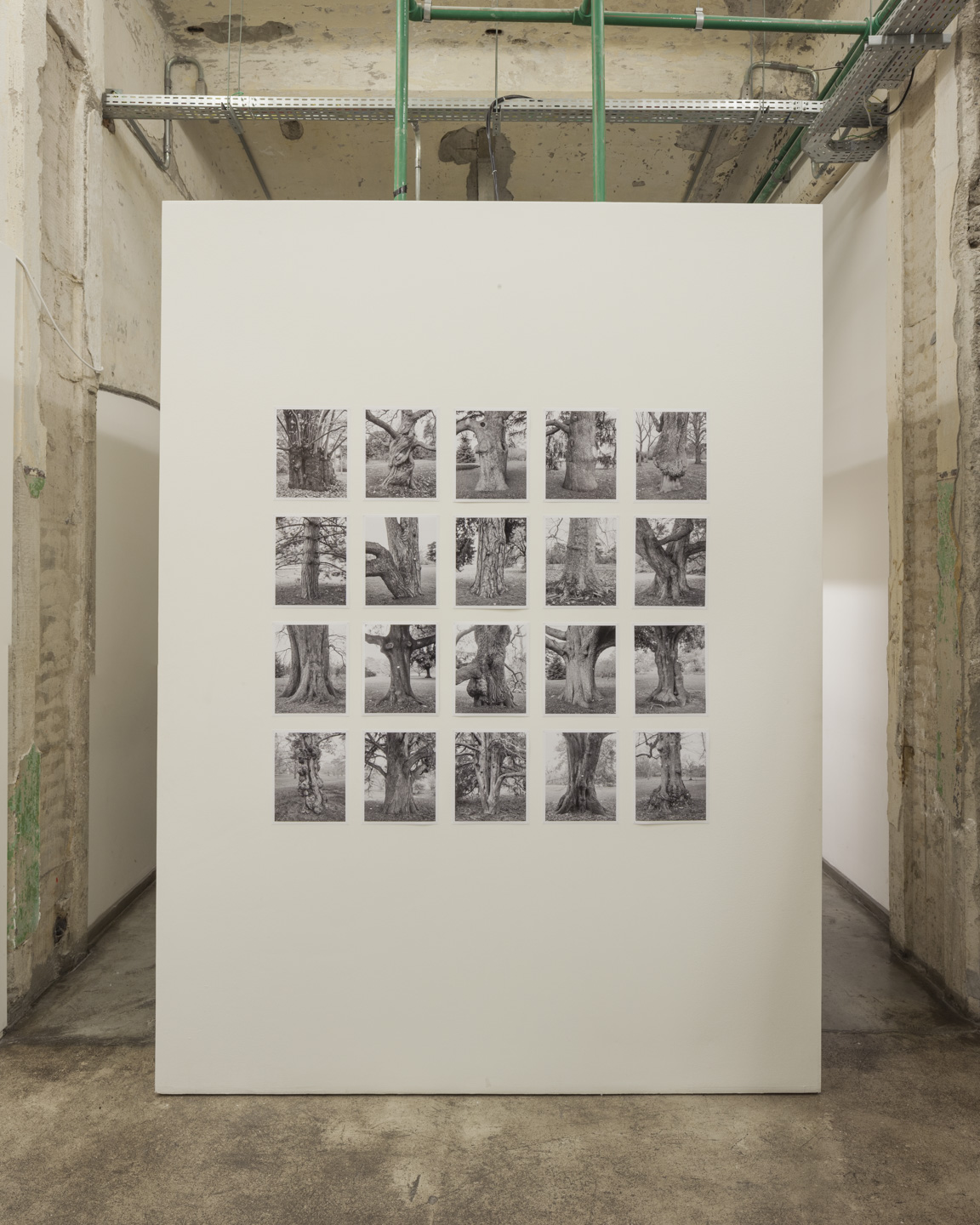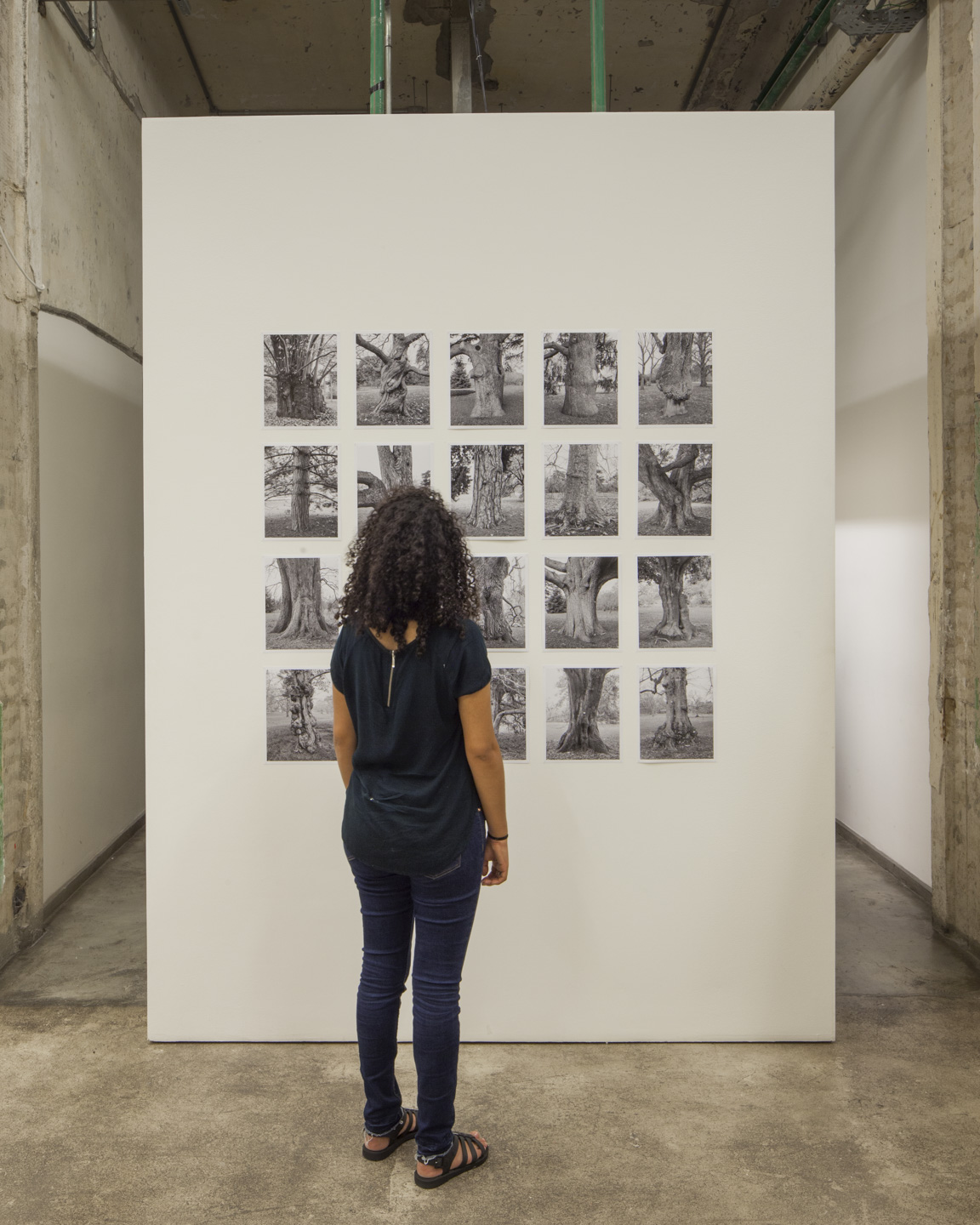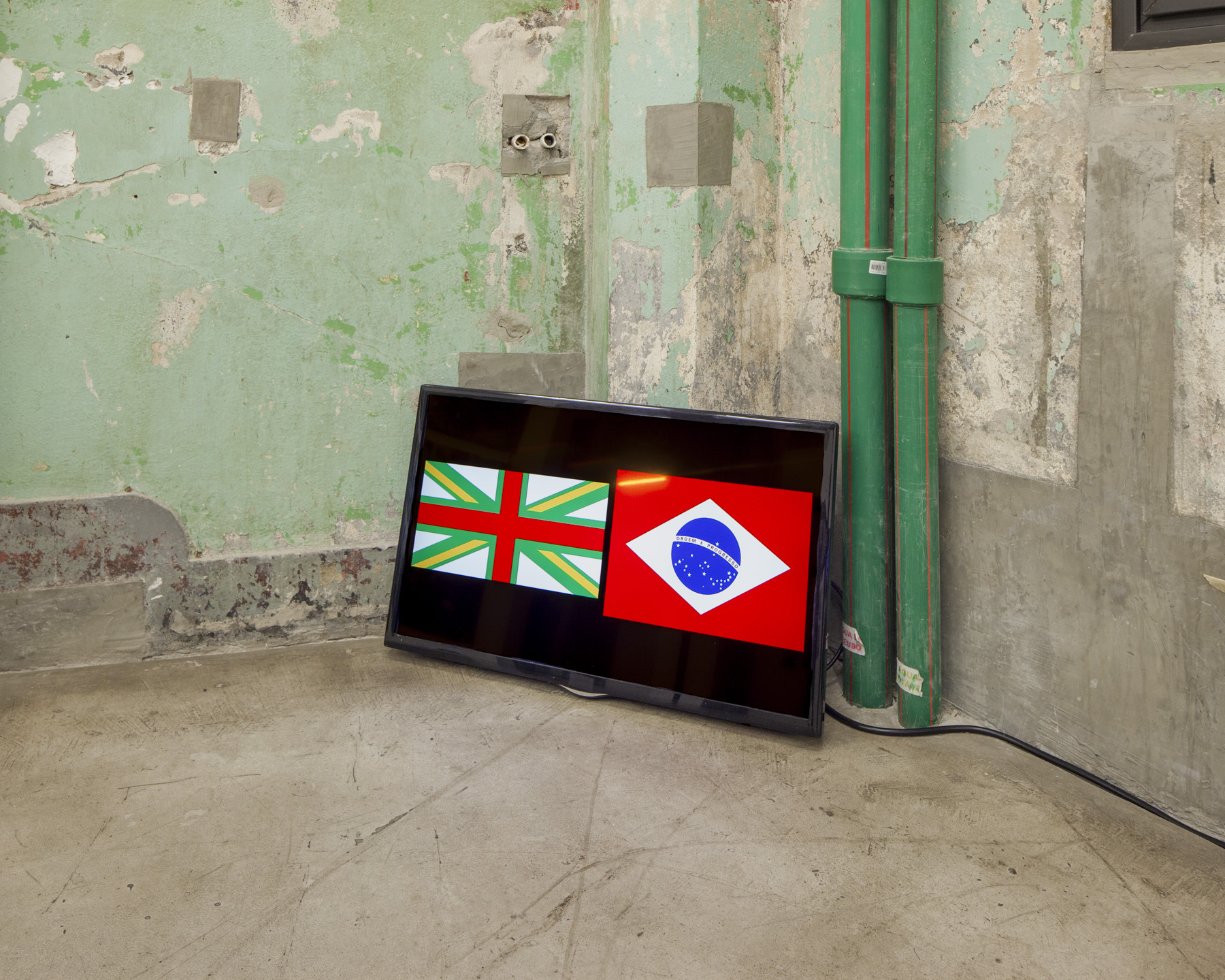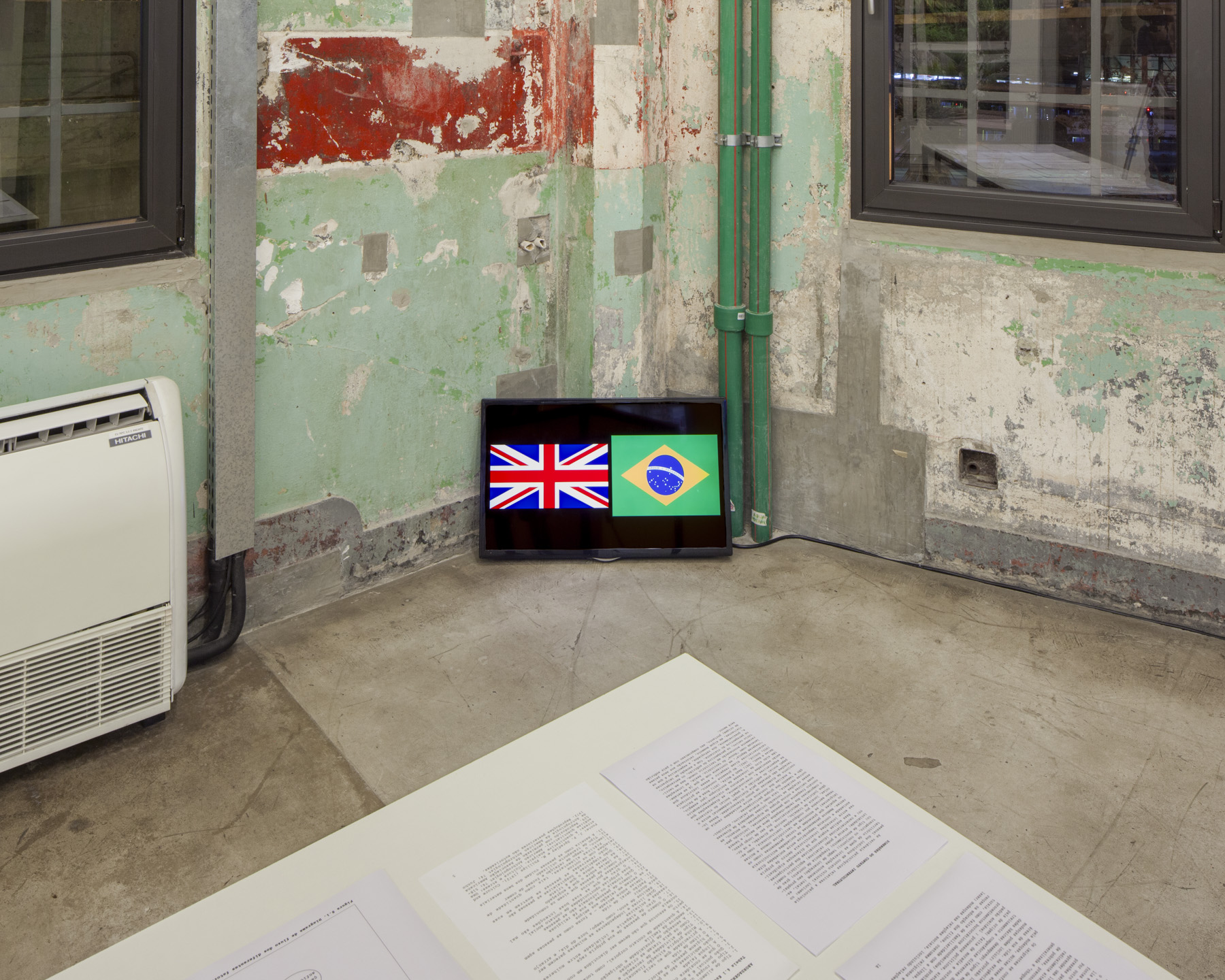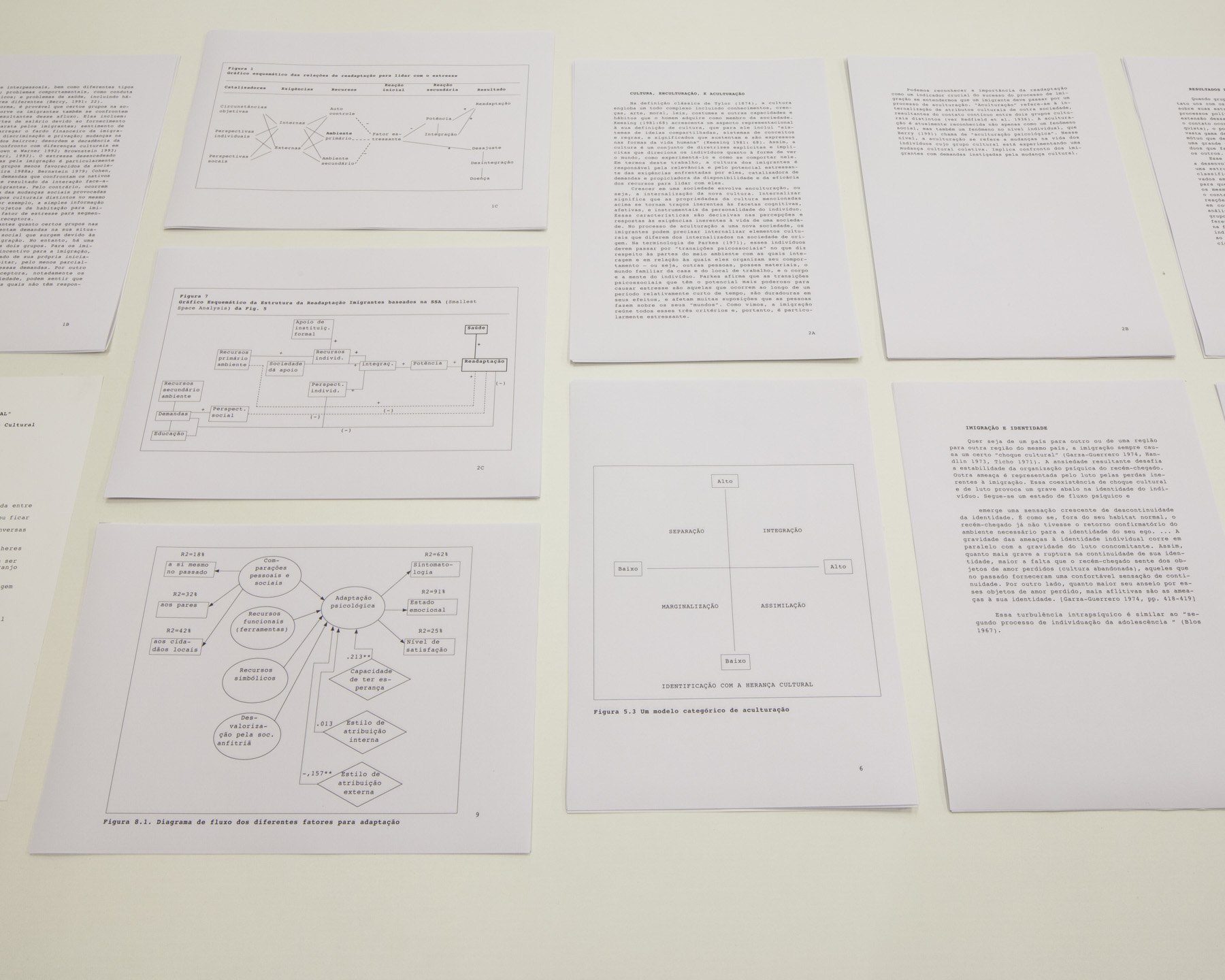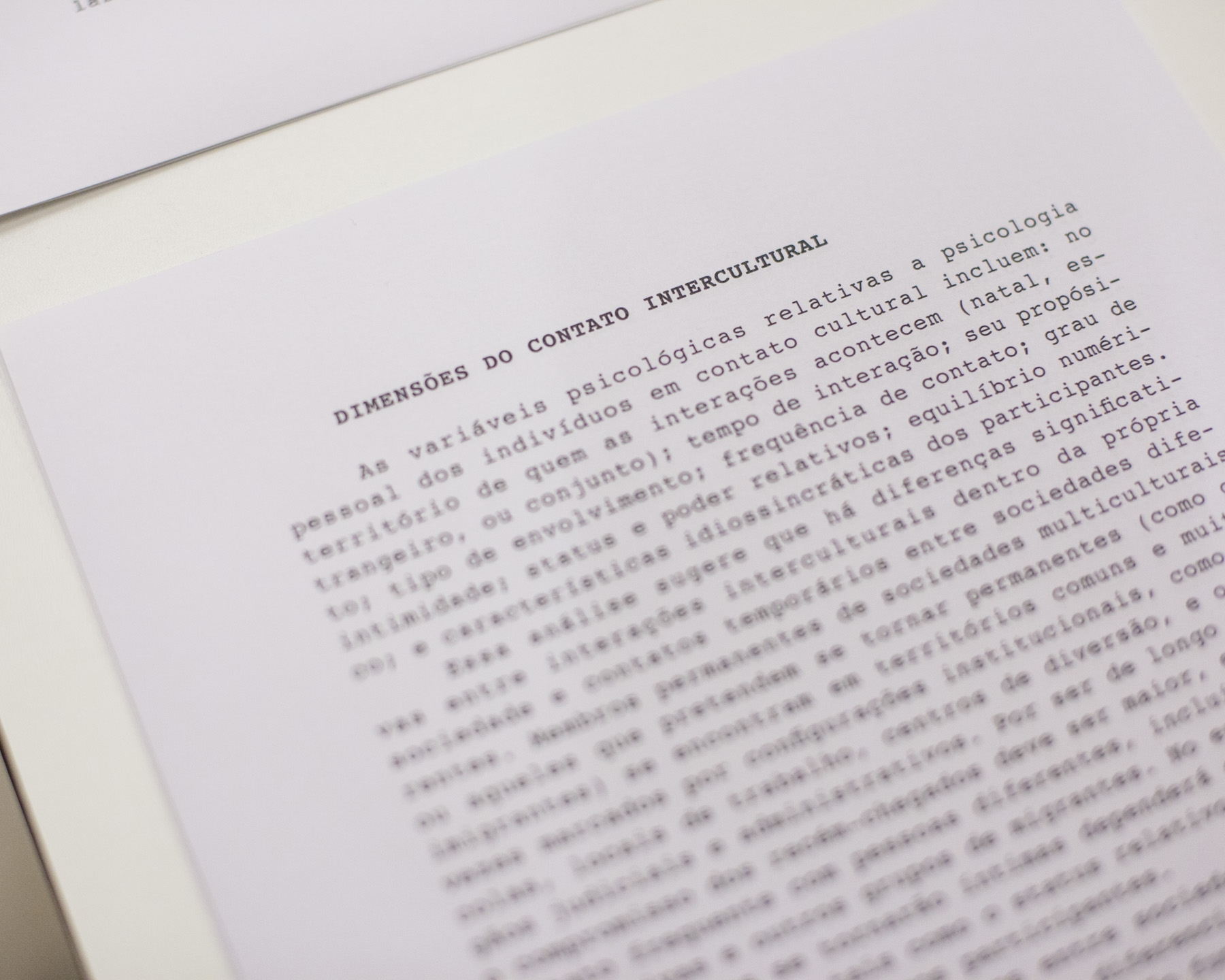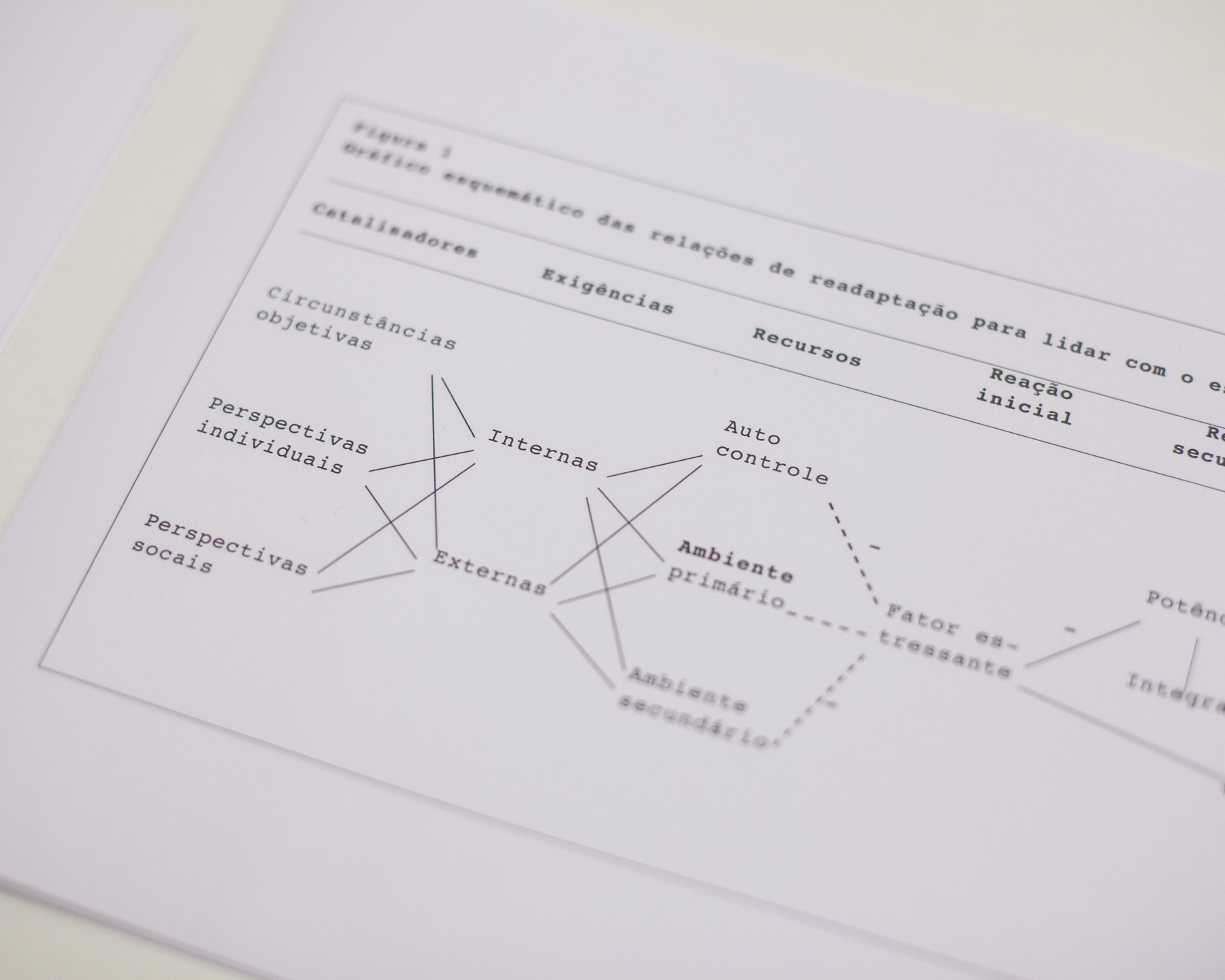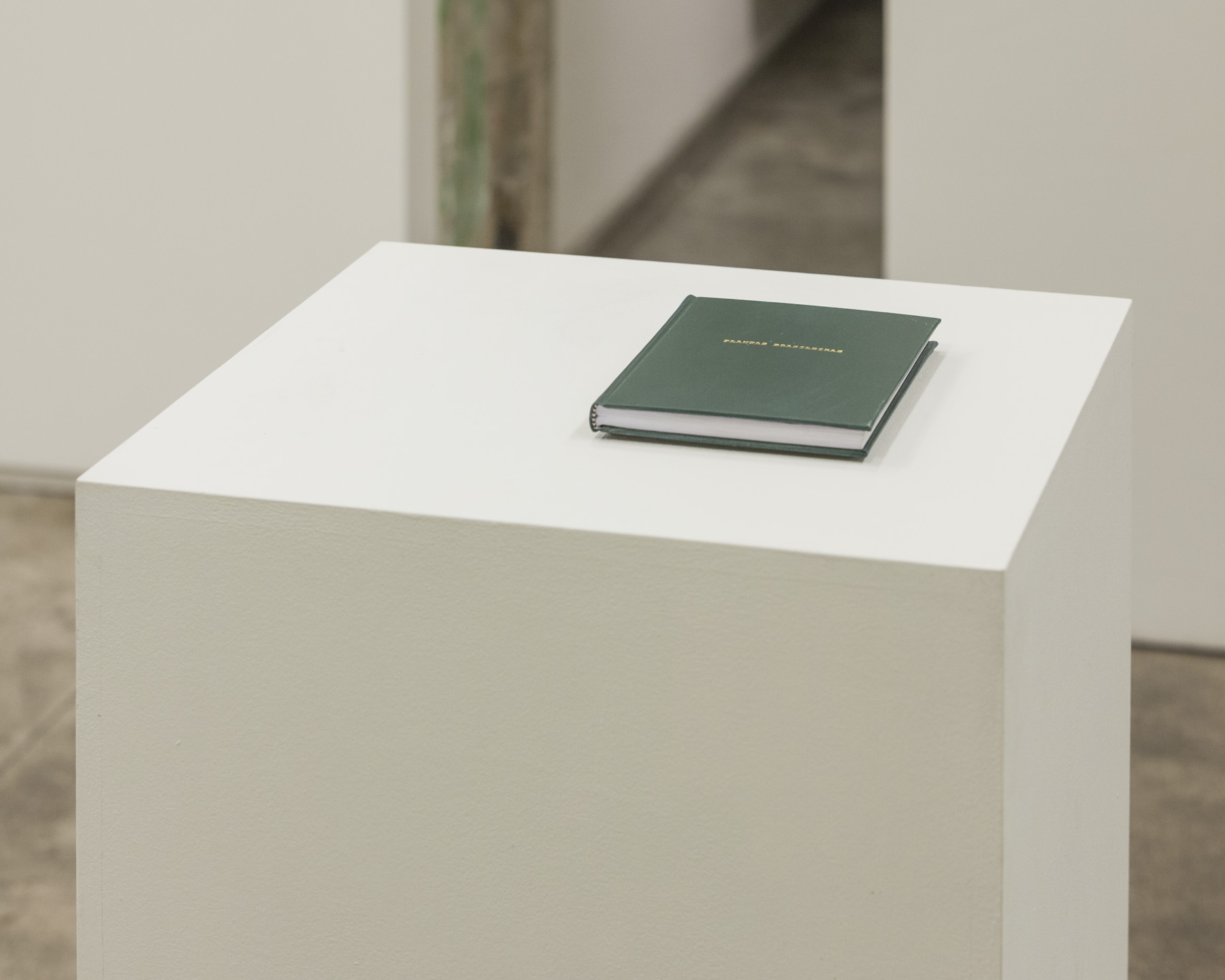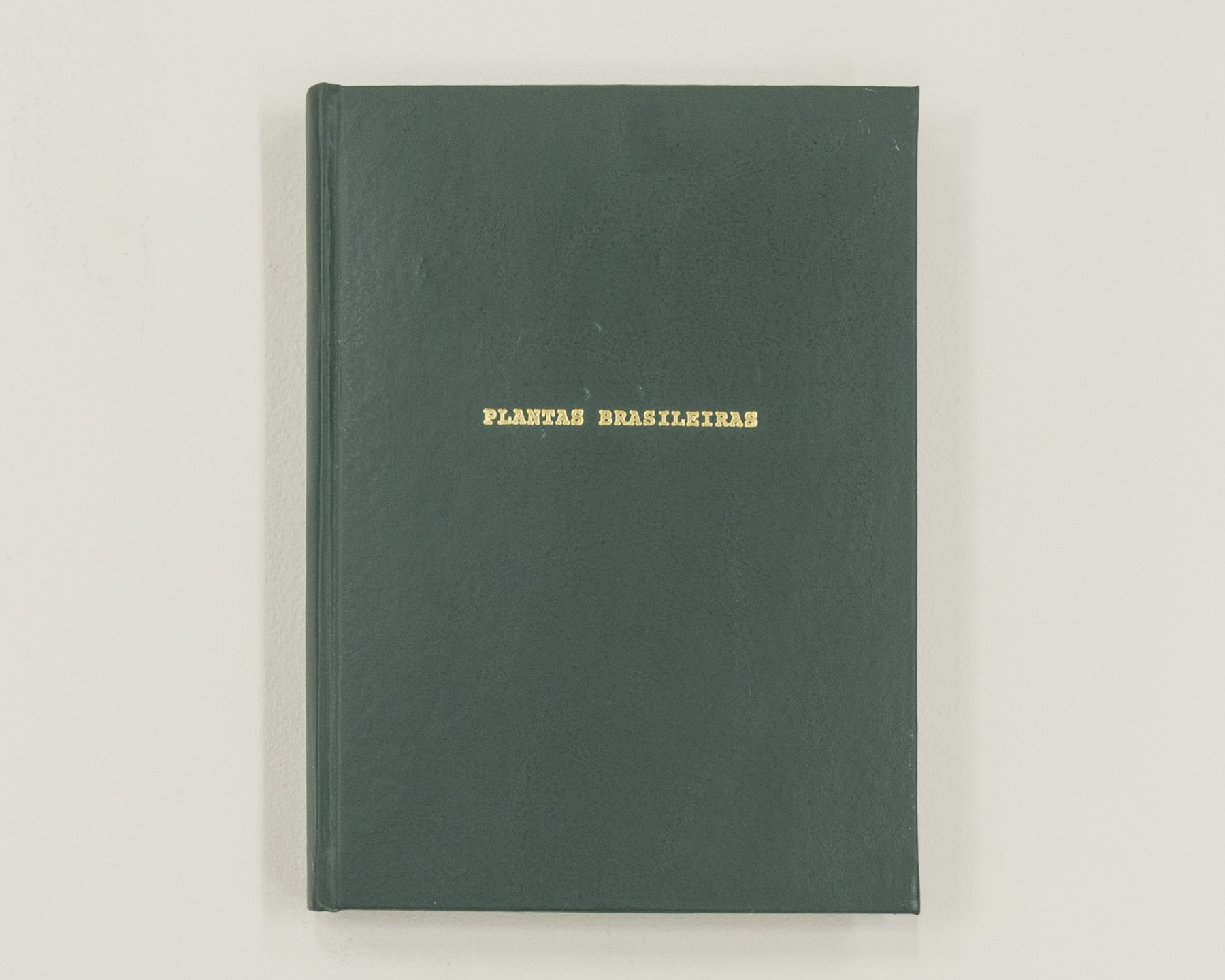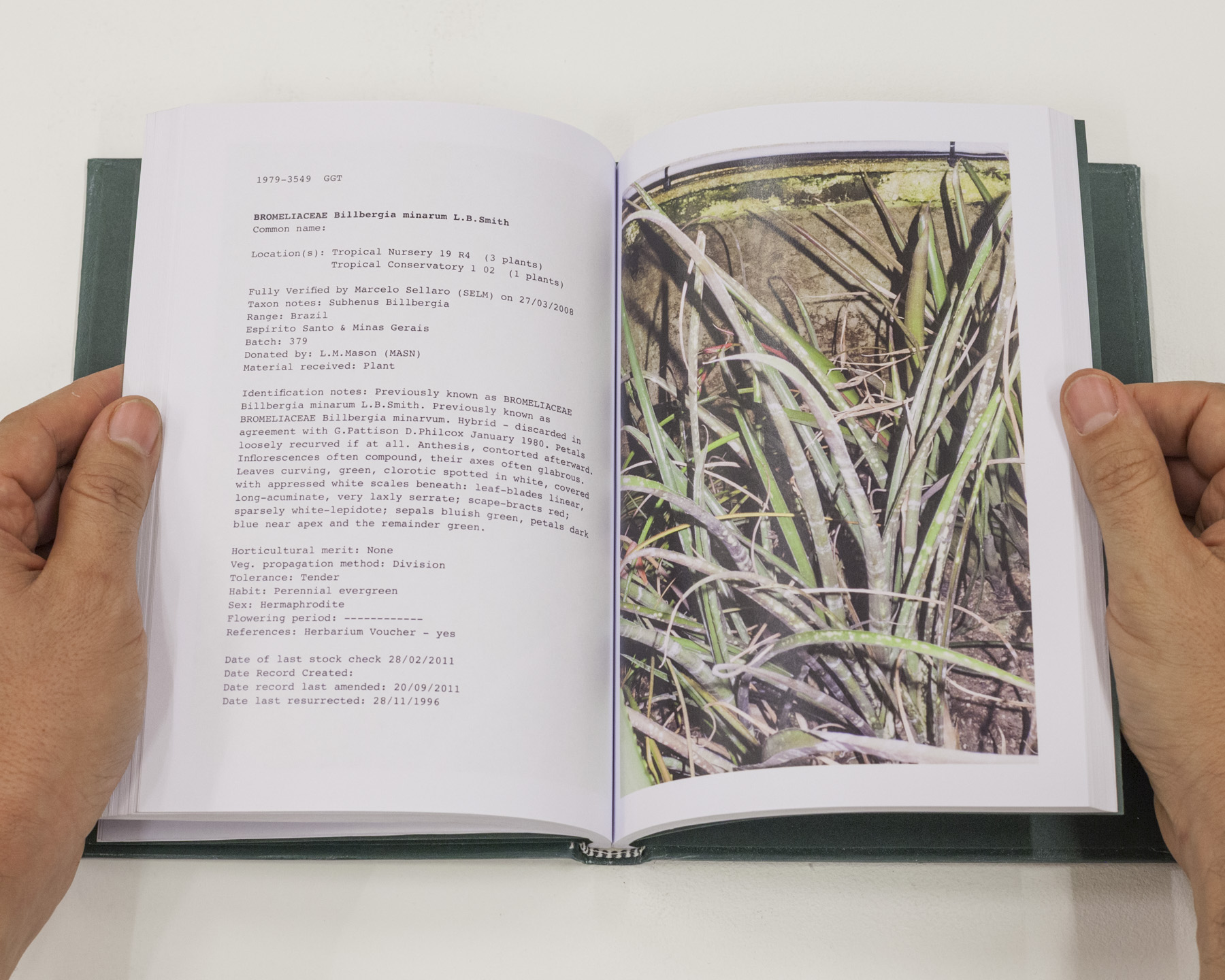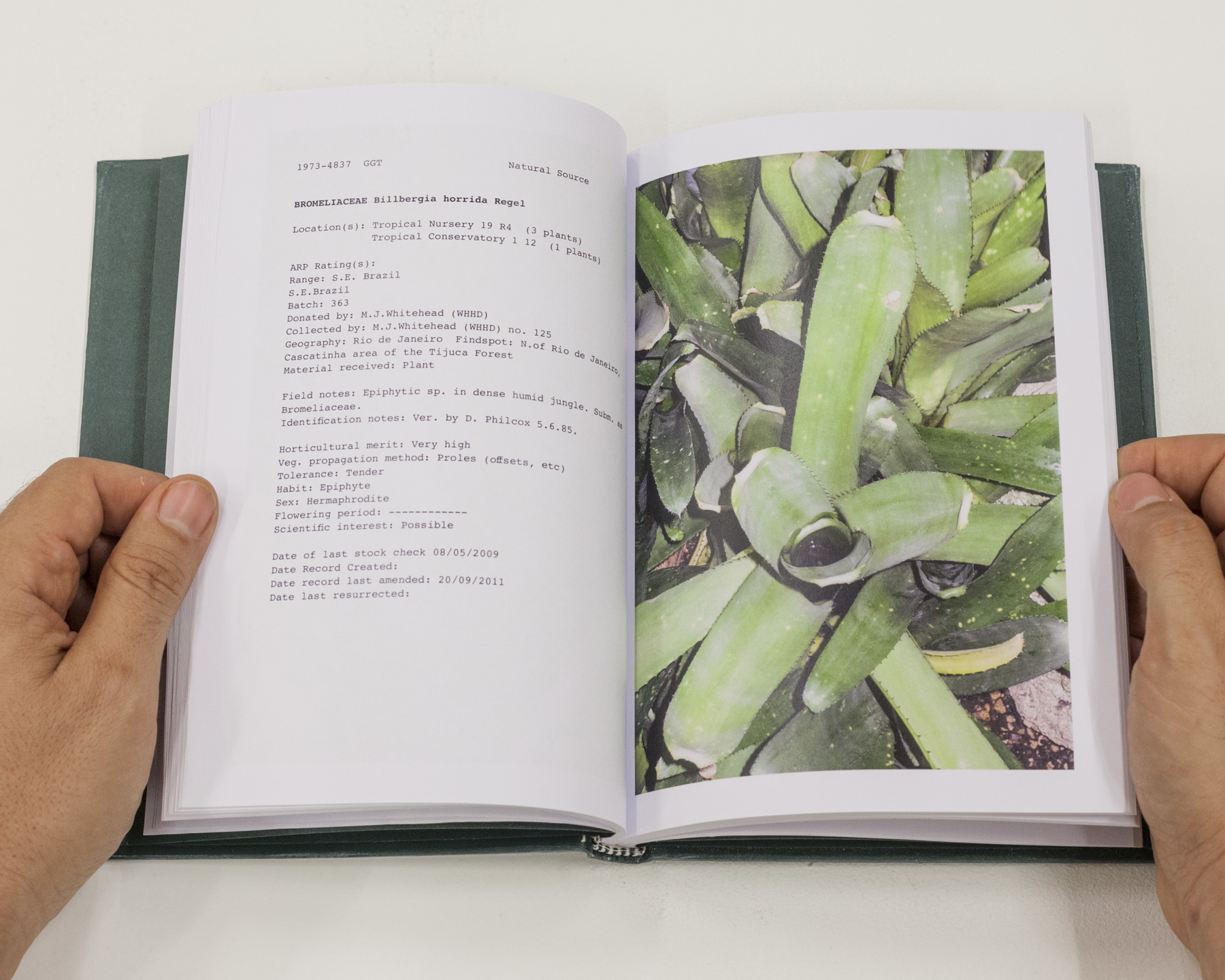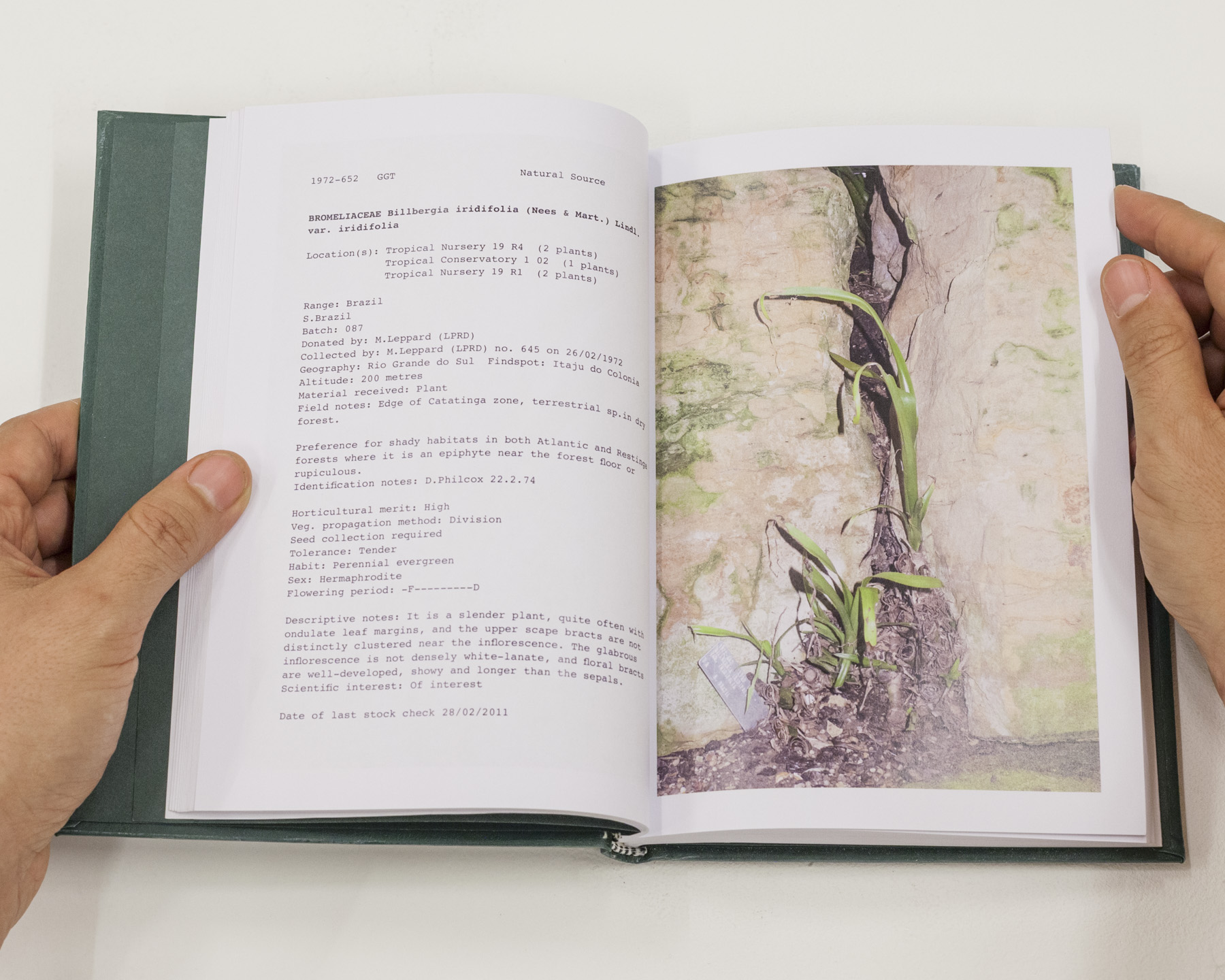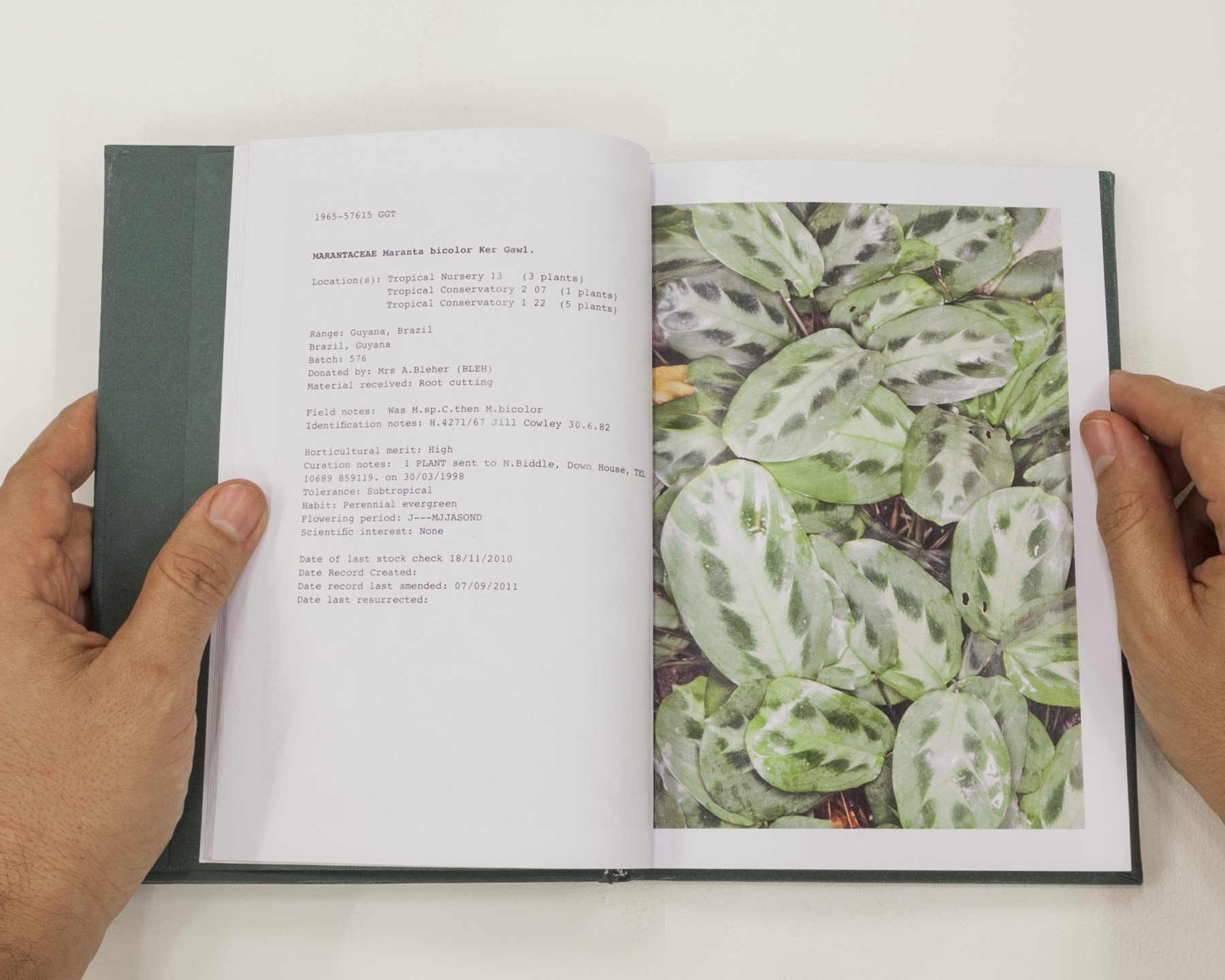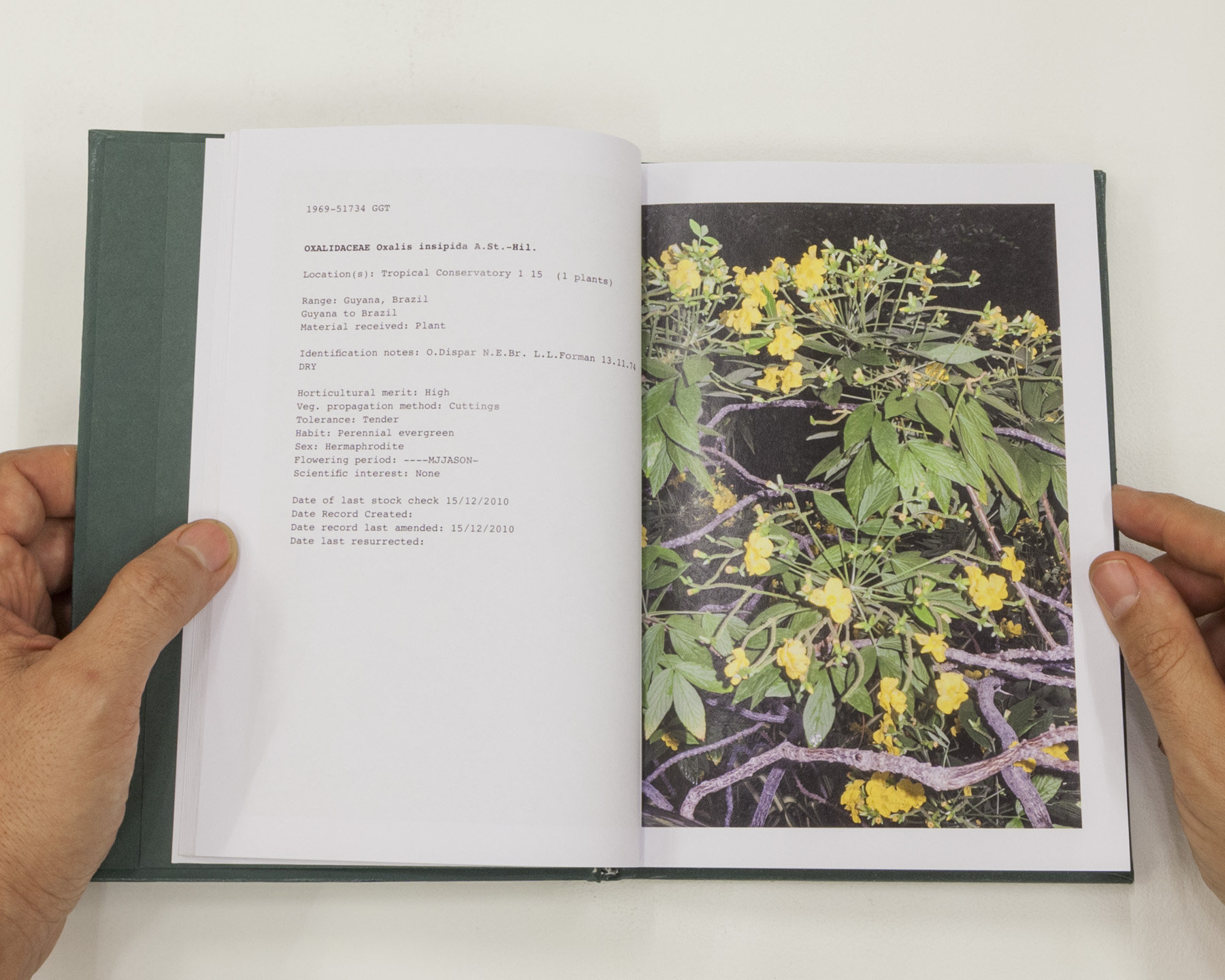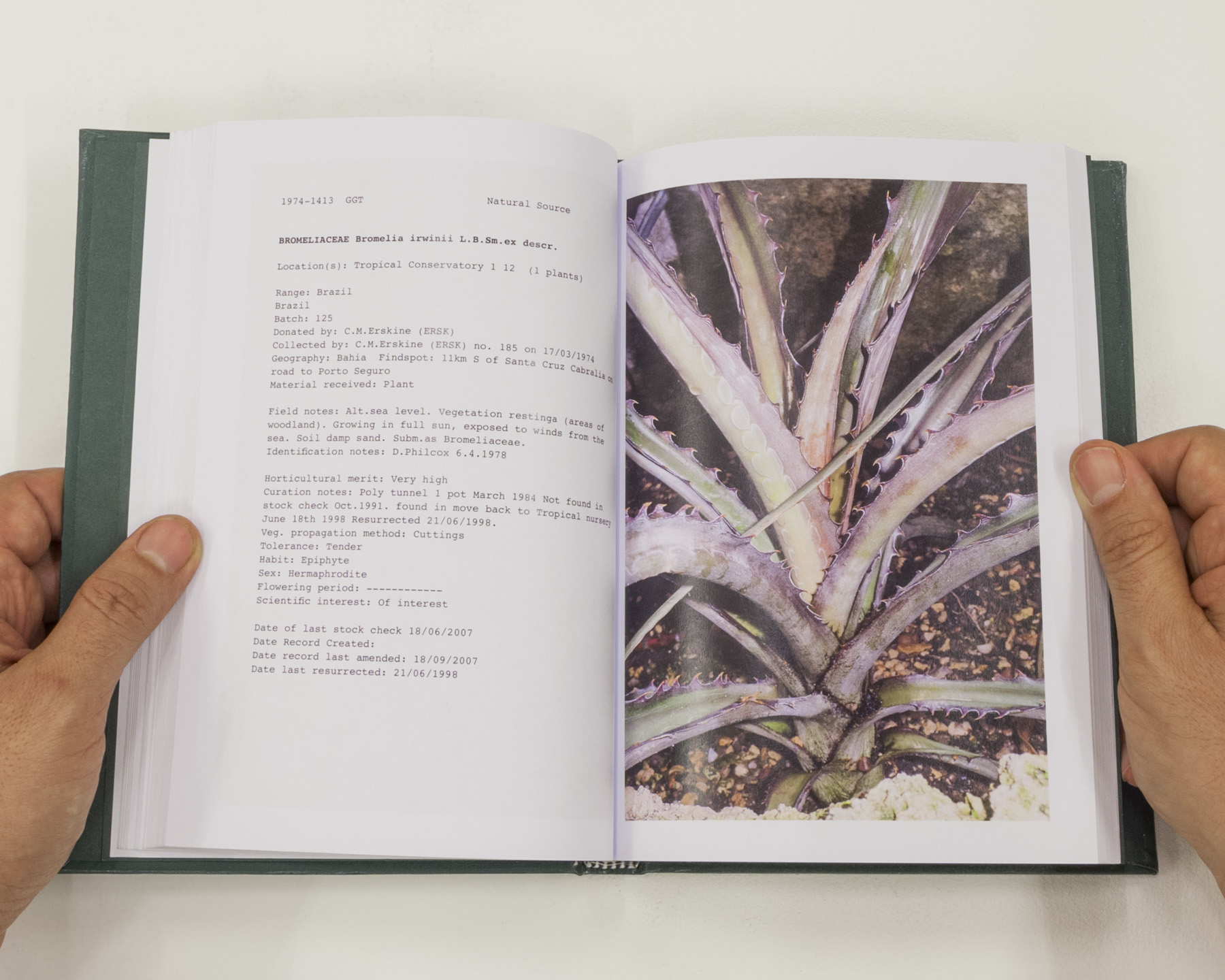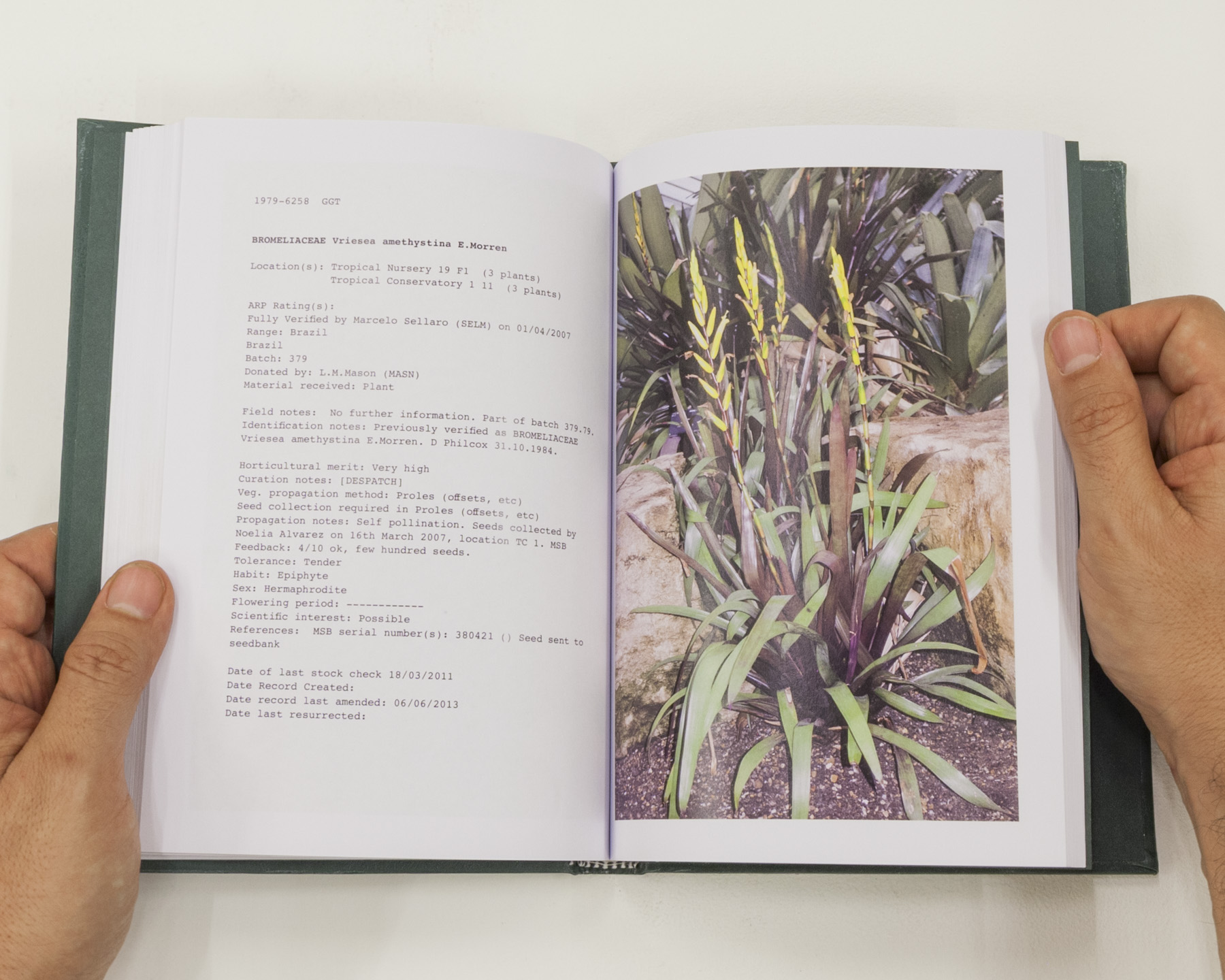Red Bull Station – São Paulo, 2016.
Curador: Fernando Velázquez
Imigrantes foi o último projeto gestado durante o período de sete anos em que André Penteado morou em Londres. Neste projeto o artista busca investigar questões relativas ao impacto psicológico que imigrantes sofrem por conta de seu deslocamento e, sobre tudo, a noção de que para sobreviver em uma cultura estranha eles criam ações para minimizar o stress que sentem, como: frequentar lugares que agrupam seus conterrâneos e oferecem a sua culinária, música, costumes, visitar seu país de origem com regularidade, etc.
Como parte de sua pesquisa, Penteado foi a Kew Gardens – o jardim botânico de Londres – onde descobriu um fato inusitado: suas estufas de plantas tropicais são visitadas constantemente por imigrantes originários de países quentes, principalmente paquistaneses e indianos, que lá vão em busca da sensação física das terras que deixaram para trás. Aqueles microclimas, criados e mantidos artificialmente, funcionam como “bolhas protetoras” e são catalizadores de afetos negligenciados pela atual condição destas pessoas. Foi esta descoberta que impulsionou a criação das três séries fotográficas, do vídeo e da animação que compõem este projeto.
A série Em casa é um ensaio contendo vistas do interior das duas das estufas tropicais de Kew Gardens, onde acima ou atrás das plantas sempre se vê as paredes e telhados de vidro destes espaços. Em Plantas Brasileiras, Penteado cataloga as plantas brasileiras que conseguiu identificar no interior das estufas. Junto com as imagens o artista exibe as fichas catalográficas destas plantas pertencentes ao banco de dados da instituição, traçando, assim, um paralelo com os protocolos e processos atravessados pelos imigrantes no seu périplo. Os outros, é uma série em preto e branco que apresenta troncos de árvores de clima frio e que, no conjunto da exposição, formula um contraponto, apontando para a forma como tanto grupos pertencentes aos imigrantes quanto àqueles pertencentes aos países hospedeiros tendem a considerar a cultura do outro como “estranha”, “diferente”, “incompreensível”. A jornada é um vídeo multicanal de 53’ de duração no qual o artista reflete sobre a intimidade como intervalo de consciência entre os tempos cronológico, da memória e dos afetos. A animação A troca apresenta no percurso de uma hora as possíveis substituições e combinações de cores entre as bandeiras do Reino Unido e do Brasil. Por último, a exposição contém uma mesa com cópias de páginas de livros sobre psicologia da imigração que, sem buscar formar um conjunto coerente ou educativo, apresentam aos visitantes questões e conceitos que foram relevantes à construção do projeto.
O fenômeno da imigração – recorrente e persistente na história da humanidade – responde sempre a um determinado contexto histórico e geopolítico e envolve questões éticas que nos defrontam com o melhor e o pior de cada sociedade. Para além destas questões macro, a obra de André Penteado opera numa camada menos evidente, porém não menos urgente: a de que o imigrante, de qualquer tipo – voluntário ou não –, é sempre um indivíduo alienado de suas memórias afetivas.

